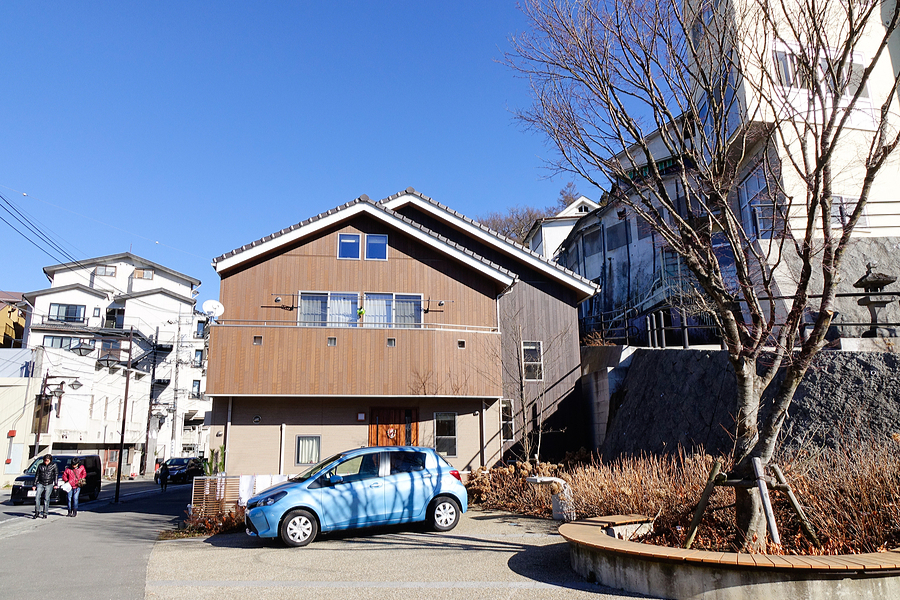 Posted on: 15 July 2025
Posted on: 15 July 2025
Top Mistakes Foreigners Make When Purchasing Homes in Japan
Japan’s real estate market is becoming increasingly attractive to overseas investors, retirees, and expats seeking long-term stability. From charming countryside homes to high-rise apartments in Tokyo, the country offers a wide range of residential opportunities. However, foreigners buying property in Japan comes with its own set of challenges, and making uninformed decisions can result in unnecessary stress or financial loss.
If you're thinking about buying a house in Tokyo or elsewhere in Japan, avoiding these common pitfalls is essential to a smooth and successful purchase—and to ensuring that your property becomes a smart investment.
Overlooking cultural and legal differences
Many foreign buyers assume that the process of purchasing property in Japan mirrors what they’re used to in their home countries. However, Japan has its own real estate practices, legal structures, and cultural nuances. For instance, verbal agreements are not legally binding, and contracts are typically written in Japanese, requiring certified translations.
A frequent oversight is not involving a bilingual legal advisor or licensed real estate agent who understands the needs of non-Japanese buyers. Without professional support, it’s easy to miss critical contract clauses or misunderstand legal obligations regarding land rights, property inheritance, or zoning laws.
Failing to research land ownership types
In Japan, not all property purchases include land ownership. Some properties come with freehold land, giving the buyer full ownership, while others are leasehold, meaning the land is owned by another party—often a local government or company—and leased for a fixed term. Foreigners unfamiliar with this distinction may find themselves with limited control over the property or be surprised when renewal negotiations arise.
This issue is especially important when buying older homes or properties in rural areas. Leasehold agreements can impact resale value, long-term plans, and even renovation approvals.
Underestimating ongoing maintenance costs
It’s common for buyers to focus on the upfront cost of a home and ignore the regular maintenance expenses that follow. Japanese homes, especially traditional ones, require consistent upkeep due to the country’s humid climate and seasonal weather extremes. Roof replacements, insulation upgrades, and termite prevention can all add up quickly.
Additionally, condominiums come with mandatory monthly management fees and sinking funds for building repairs. Foreign buyers who don’t factor these into their budgets often struggle with unanticipated costs down the line.
Not securing proper financing early
Although Japan allows foreigners to purchase property without citizenship or residency, securing a mortgage can be more difficult. Many Japanese banks require applicants to have permanent residency, stable income in Japan, and a Japanese guarantor. Those without these conditions often face limited loan options or higher interest rates.
Some buyers begin property hunting assuming they can obtain financing later, only to discover they don’t qualify. Others miss out on desirable properties due to delays in confirming funds. It's crucial to explore financing options and get pre-approval before making serious inquiries.
Misjudging the location’s long-term appeal
While Tokyo and Osaka remain popular among expats and investors, not all neighbourhoods offer the same level of accessibility, amenities, or resale value. Some buyers get swayed by a home’s aesthetic or price without researching the area thoroughly.
Transportation convenience, access to schools and hospitals, proximity to commercial centres, and even natural disaster risk zones should all be considered. For example, a beautiful home located far from a train station might become a burden over time, particularly for buyers who plan to live without a car.
Ignoring property age and rebuild restrictions
Older properties in Japan often come at a bargain, especially if they’re more than 30 years old. However, these homes may no longer meet current building codes, and in some cases, buyers cannot rebuild or significantly renovate them due to local regulations or narrow road access.
Before purchasing an older home, it’s vital to check whether reconstruction is allowed and whether the cost of bringing the property up to modern safety and energy standards is financially viable.
Assuming the process ends at purchase
Many foreign buyers mistakenly believe that the buying process ends once the keys are handed over. In reality, there are post-purchase responsibilities that must be managed, including notifying utility companies, registering the property, updating local tax records, and fulfilling annual property tax obligations.
Those who don’t stay on top of these tasks may face penalties or administrative complications later. A trustworthy agent can help navigate this transition phase more smoothly.
Skipping professional property inspection
Unlike some countries where home inspections are routine and required, property inspections in Japan are not always standard practice. As a result, some buyers—especially foreigners unfamiliar with the risks—skip this step to save money or speed up the purchase.
This is a costly mistake, especially for detached homes or older buildings, where hidden structural issues or outdated systems may exist. Engaging a certified property inspector can help reveal any concerns before committing to the investment.
Choosing the wrong real estate partner
Perhaps one of the biggest mistakes is not choosing the right real estate company to guide the purchase. Working with professionals who are experienced in helping non-Japanese buyers is crucial. They not only provide bilingual support but also offer local insights, legal guidance, and post-sale assistance.
Conclusion
Avoiding these pitfalls can make all the difference when it comes to a smooth property buying experience in Japan. Whether you're looking for a serene countryside retreat or buying a house in Tokyo, a well-informed approach ensures that your investment meets both your personal and financial expectations.
For expert guidance tailored to international buyers, JP Homes offers dedicated support throughout every stage of the property purchase. Explore more insights and listings with JP Homes today.